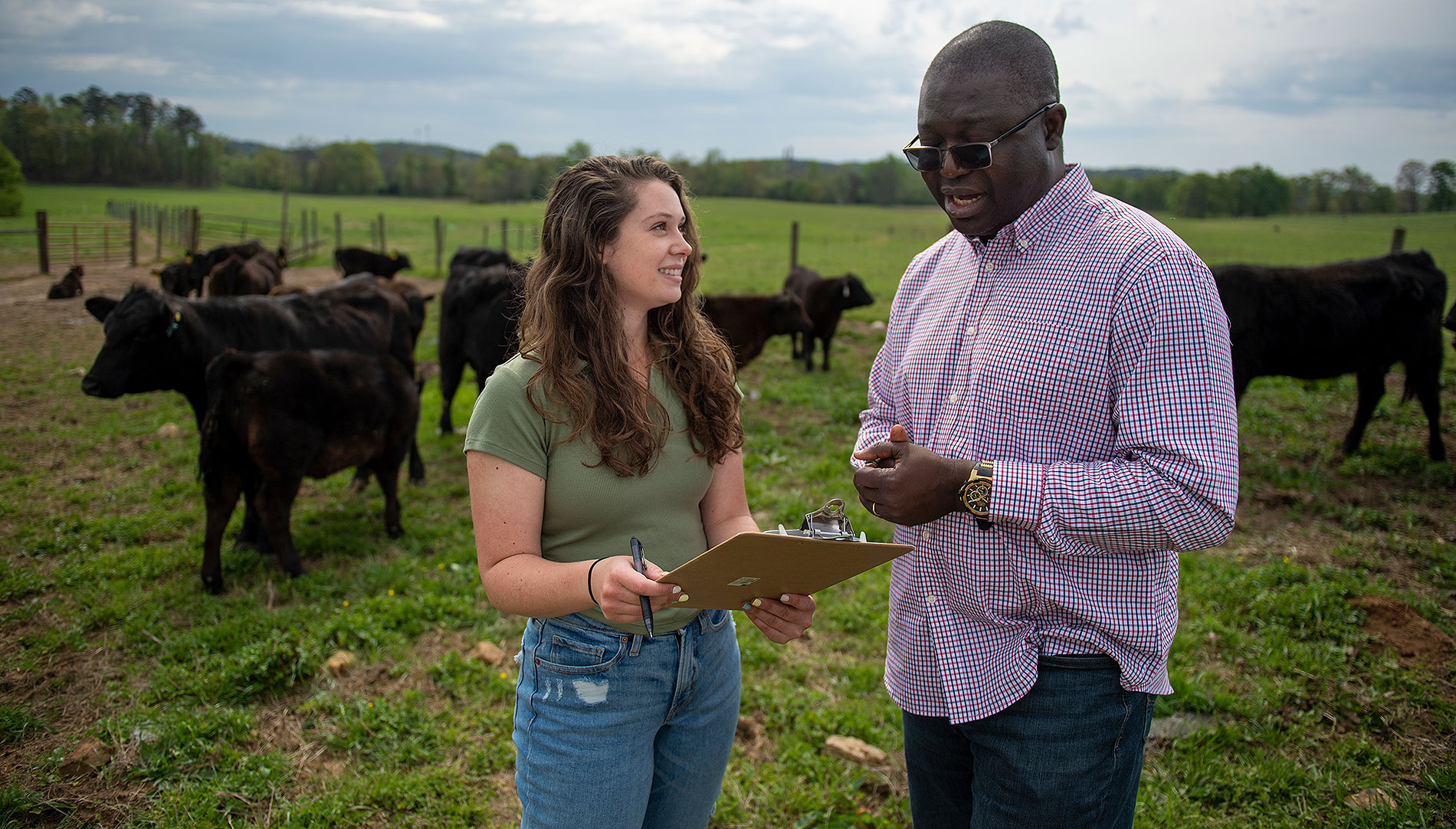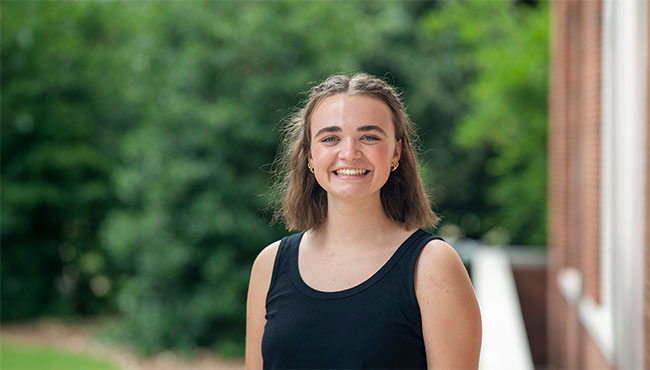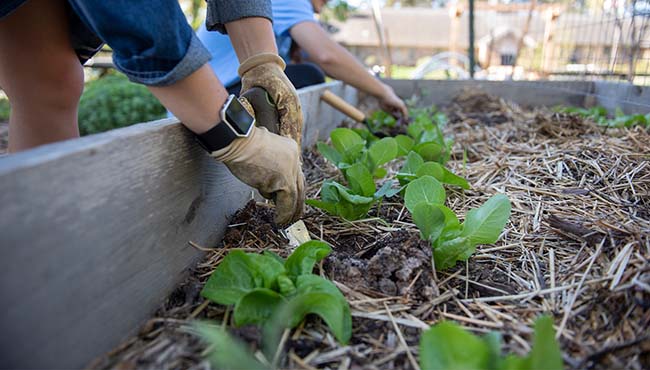Brooke Appelbaum ’23 gained 1,300+ hours of experience working with animals, from dogs and cats to sheep and cattle, by graduation day at Berry College. It's giving her a head start at the University of Georgia College of Veterinary Medicine and later when she begins a career working with large animals or specializing in internal medicine or surgery.
Hands-on training in the animal science program was a major reason Brooke chose Berry, along with small class sizes and the ability to develop close working relationships with faculty. Berry’s 27,000-acre campus includes a farm that gave Brooke ample opportunities to work in the dairy and volunteer during lambing season.
Real-world veterinary hours are essential for vet school applicants. An ongoing veterinary assistant role at a clinic near Berry offered the opportunity to assist with large animal care and emergency farm calls. In addition, Brooke spent a summer as an emergency room assistant at the Veterinary Care and Specialty Group in Chattanooga, Tennessee, where she followed and studied puzzling cases the veterinarians encountered.
Classes and labs also reinforced practical application within the broad field of animal science. “For example, I took a veterinary microbiology class where we learned how to plate, grow and identify different microorganisms, which is something that applies directly to diagnostic care in a clinic,” she explains. “I also took an animal health and disease class where we performed physical exams on the cows at the dairy, which is something most animal science students are unable to do until they enter veterinary school.”
Through Berry’s LifeWorks program, Brooke served as a research lab coordinator alongside Sunday Peters, associate professor of animal science, since her freshman year. She says, “I worked with Dr. Peters to analyze interferon-alpha-gene locus (which plays a significant role in innate immunity) in domesticated and undomesticated ruminants (like cattle and sheep) and within different specialized breeds of domesticated animals (like beef versus dairy cattle) to see if domestication or selection for certain traits has influenced this gene at all.” Brooke adds that Peters’ long-term research goal entails developing selective breeding techniques that can produce animals with stronger immunity against disease-causing pathogens.
Other insights from the lab made a deep impact. “Being allowed to solve problems on my own, fail in lower stakes than the real world, and then succeed and teach others the skills I learned had a large part in my personal growth,” she notes.
One-on-one coaching is a hallmark of the animal science program. Brooke highlights Laura Flatow, the pre-vet coordinator, as a “patient, forgiving and trusting mentor” who played an essential role in readying her for veterinary school. Flatow not only helped her review potential schools and proofread application essays, but she also provided reassurance during stressful moments, Brooke says. She was also accepted to veterinary school at Mississippi State University, the University of Tennessee and Auburn University.
Brooke plans to earn a public health master’s degree to continue exploring connections between animal and human health introduced through Berry’s unique One Health minor. Reflecting on all the experience and guidance at Berry, she offers this advice to future animal science majors: “Take advantage of every opportunity that comes your way. You never know when you’re one ‘yes’ away from your future.”



